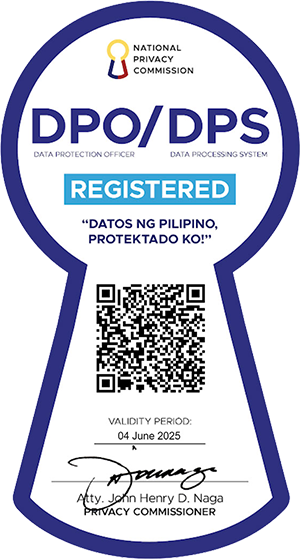
If it’s too good to be true, or fear or intimidation is used to get information from you, it’s probably a phishing scam.
Phishing is when you receive messages, usually via email, text, or calls, asking for sensitive information. It could be through two ways. First, they present an offer that’s hard to resist, like winning a big-ticket item or a chance to win in a raffle. Second, they state that you need to update your account information or pay a certain balance, or else your bank account will be inaccessible.
These pieces of information, like credit or debit card numbers, PINs, security codes, or the like, can be used to steal your identity or access your bank accounts. It’s very prevalent because many still fall for or believe such scams.
How do you avoid getting victimized and getting "phished"?
If you receive a link from an unknown source, don’t click it.
You might be redirected to a website that might ask you to input sensitive and valuable information.
Check your source. Look at the email address of the message.
Was the email sent through an official email address? If you receive a call or text via an unknown number, converse with them via text so that you have a trail that you can go back to should the messages turn out to be a scam.

How do you know if the website you are visiting is legitimate and safe?
Most, if not all official websites are protected by SSL, which shows a padlock symbol on top, where you can find the website name.

Browse and do transactions only through official channels.
For SKY, these are the official channels:
- Website: mysky.com.ph
- SMS: SKYserves and SKYpromo
- Email: noreply@skycable.com and sky_billing@mysky.com.ph
Report and block any suspicious email addresses or mobile numbers.
If you encounter any personnel who are pretending to be affiliated with SKY, you may confirm their identity or inform us by messaging us through KYLA:
- on Viber: mysky.com.ph/kylaofsky
- on Facebook Messenger: m.me/myskyupdates
- on web: mysky.com.ph/message-us
Never give out personal information.
Details such as your mother’s maiden name, or highly specific answers to questions, like the name of your first pet, are oftentimes used as security questions for accounts. Organizations will never ask for sensitive information, so be wary of the information you need to divulge if it involves handing out details that might result in identity theft.
It only takes a few minutes to check the source of suspicious messages you receive. Those few minutes may save you from hours of the stress of getting out of a phishing scam. Don’t be a victim. Always think before you click!


